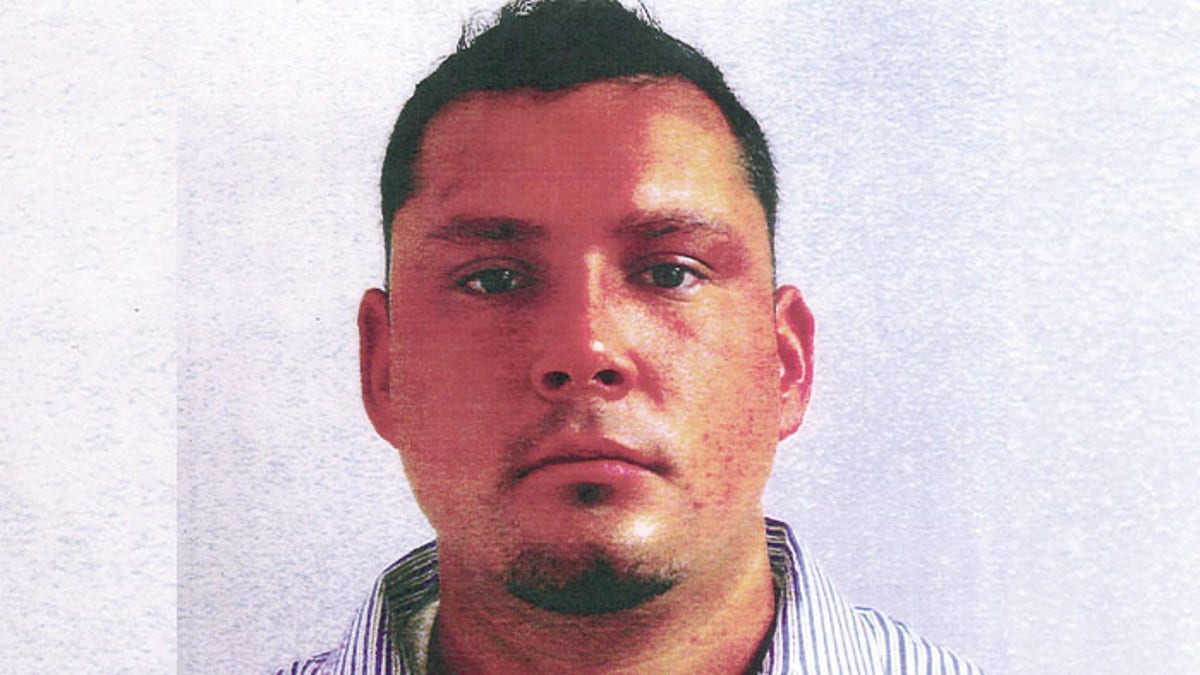
David Kwiatkowski, a former lab technician at Exeter, N.H. Hospital, was arrested in July at a hospital in Massachusetts where he was receiving medical treatment and charged with tampering with needles and infecting at least 31 people who were treated at Exeter Hospital with hepatitis C.
A traveling medical technician was sentenced Monday to 39 years in prison for stealing painkillers and infecting dozens of patients in four states with hepatitis C through tainted syringes.
David Kwiatkowski, 34, was a cardiac technologist in 18 hospitals in seven states before being hired at New Hampshire's Exeter Hospital in 2011. He had moved from job to job despite being fired at least four times over allegations of drug use and theft. Since his arrest last year, 46 people have been diagnosed with the same strain of hepatitis C he carries.
Kwiatkowski admitted stealing painkillers and replacing them with saline-filled syringes tainted with his blood. He pleaded guilty in August to 16 federal drug charges.
He apologized Monday, saying he was very sorry what he done.
Prosecutors had pushed for a 40-year prison sentence, saying he created a "national public health crisis," put a significant number of people at risk and caused substantial physical and emotional harm to a large number of victims.
Defense lawyers argued that a 30-year sentence would better balance the seriousness of the crimes against Kwiatkowski's mental and emotional problems and his addiction to drugs and alcohol, which they said clouded his judgment.
In all, 32 patients were infected in New Hampshire, seven in Maryland, six in Kansas and one in Pennsylvania. Kwiatkowski, 34, also worked in Michigan, New York, Arizona and Georgia.
Two of the 16 charges stem from the case of a Kansas patient who has since died. Authorities say hepatitis C, a blood-borne virus that can cause liver disease and chronic health problems, played a contributing role.
Linda Ficken, 71, of Andover, Kan., was one of two Kansas victims attending Monday's sentencing hearing. She underwent a cardiac catheterization at Hays Medical Center in Hays, Kan., in 2010, and said she is haunted by the memory of Kwiatkowski standing at her bedside for more than an hour, applying pressure to the catheter's entry site in her leg to control a bleeding problem.
Ficken told The Associated Press last week that while she has struggled with fatigue since her diagnosis, a bigger blow came last month when her brother was diagnosed with leukemia and was told he needs a stem cell transplant. While siblings often are the closest match, she can't donate because of her hepatitis C status.
In a written statement to the court, she told Kwiatkowski she would like to see him spend the rest of his life "locked away from society, in a prison that provides you the ultimate hell on earth which you so deserve."